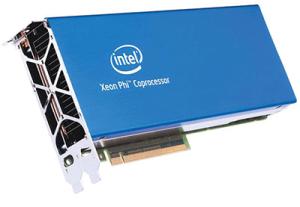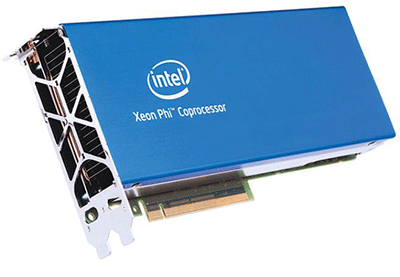 Adding coprocessors such as the Intel Xeon Phi into a cluster for accelerating computing applications is understood, and processes have been established to reduce the complexity. To get maximum performance from the Intel Xeon Phi, applications may have to be re-thought to take advantage of the SIMD architecture. However, integrating an accelerator in a cluster that can communication with the rest of the cluster, including storage devices, takes more thought.
Adding coprocessors such as the Intel Xeon Phi into a cluster for accelerating computing applications is understood, and processes have been established to reduce the complexity. To get maximum performance from the Intel Xeon Phi, applications may have to be re-thought to take advantage of the SIMD architecture. However, integrating an accelerator in a cluster that can communication with the rest of the cluster, including storage devices, takes more thought.
After configuring the coprocessors on the network, which requires more thought and consideration than just using a single coprocessor on a server, attention can be paid towards allowing the coprocessor to perform I/O, as needed. Once the network is set up, NFS version 3 can be used, as provided by the Intel MPSS software. If the coprocessor can ping the NFS server, then standard commands can be used for mounting, etc.
The Lustre File System can also be supported on the coprocessor. Building the environment with the Intel MPSS software allows for cross compiling a kernel for the coprocessor. Likewise, support for both the BEEGFS and the Panasas PanFS file system can be used. With the Panasas PanFS file system, users can download the software directly to run on the Intel Xeon Phi coprocessor.
Choosing the proper file system for the cluster computing environment is an important decision when architecting the system. While each of the file systems have its advantages and disadvantages in terms of performance, networking requirements (and limitations), it is important for the installed coprocessors to be able to access the storage system. By treating the Intel Xeon Phi processors as independent nodes in the network topology, the file systems can be used as needed, although with some work by the system administrators.
Source: Intel Corporation, USA




